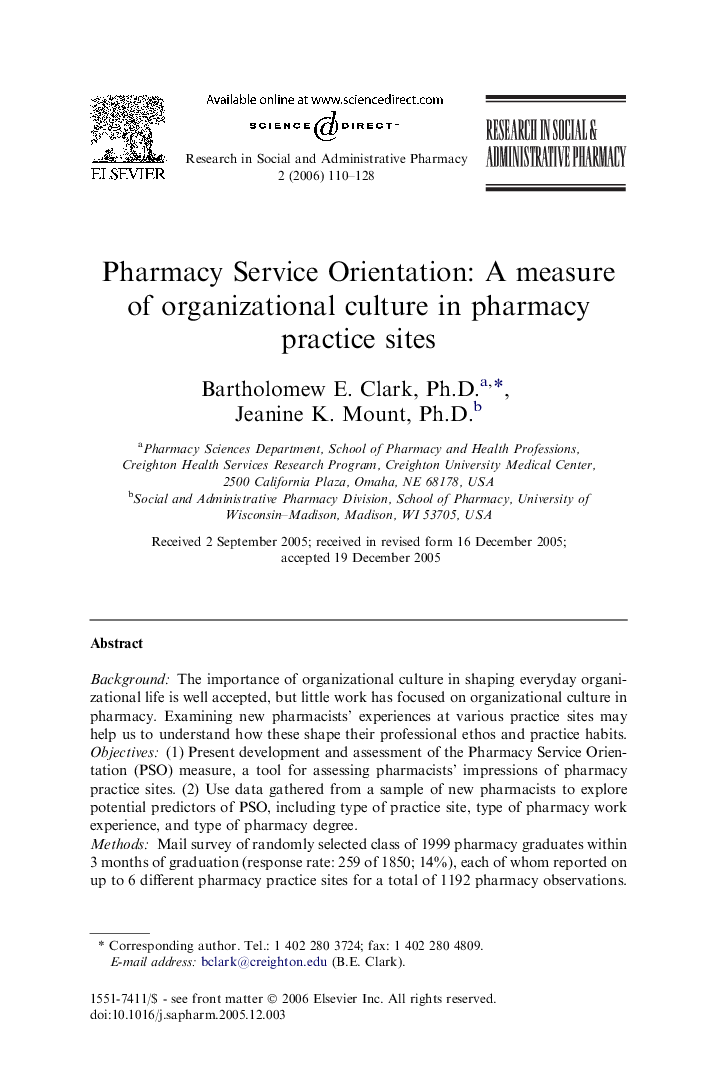| Article ID | Journal | Published Year | Pages | File Type |
|---|---|---|---|---|
| 2509048 | Research in Social and Administrative Pharmacy | 2006 | 19 Pages |
BackgroundThe importance of organizational culture in shaping everyday organizational life is well accepted, but little work has focused on organizational culture in pharmacy. Examining new pharmacists' experiences at various practice sites may help us to understand how these shape their professional ethos and practice habits.Objectives(1) Present development and assessment of the Pharmacy Service Orientation (PSO) measure, a tool for assessing pharmacists' impressions of pharmacy practice sites. (2) Use data gathered from a sample of new pharmacists to explore potential predictors of PSO, including type of practice site, type of pharmacy work experience, and type of pharmacy degree.MethodsMail survey of randomly selected class of 1999 pharmacy graduates within 3 months of graduation (response rate: 259 of 1850; 14%), each of whom reported on up to 6 different pharmacy practice sites for a total of 1192 pharmacy observations. Pharmacy Service Orientation is scored on a 1-10 semantic differential scale and reliability was assessed using Cronbach's alpha. Predictors of PSO were explored using t test and ordinary least squares regression procedures.ResultsReliability of the PSO across all observations was 0.86. When divided according to recency of experience and type of experience, reliabilities ranged from 0.78 to 0.87. Analysis of potential predictors of PSO showed that non–corporate-community sites had significantly greater pharmaceutical care-oriented cultures (mean PSOs of 7.42 and 5.13, respectively; P < .001). The same pattern was seen for academic and nonacademic worksites (mean PSOs of 7.46 and 6.01, respectively; P < .001). The pharmacist's pharmacy degree type was not predictive of PSO. Multivariate regression results showed that type of practice site and type of pharmacy work experience explained more than 25% of the observed variance in PSO.ConclusionsPharmacy Service Orientation is a reliable measure. Statistically significant differences in PSO comparisons by degree and by experience type are explained by significant differences between the PSOs of corporate-community and non–corporate-community sites.
